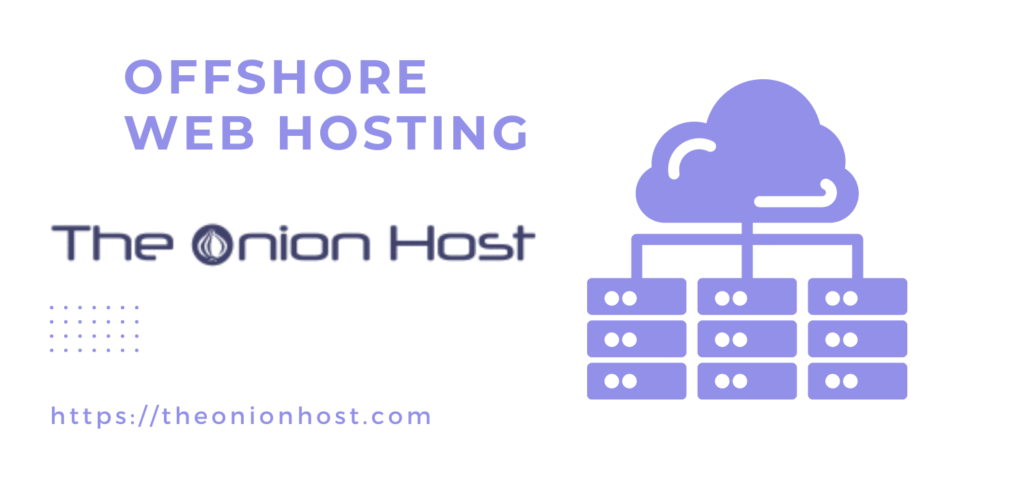In today’s digital world, where security and reliability are paramount, offshore web hosting offers numerous advantages that are hard to ignore. With growing concerns about data privacy and censorship, more and more businesses and individuals are turning to offshore hosting as a viable solution.
When it comes to security, offshore web hosting providers offer a level of protection and anonymity that is unmatched by traditional hosting options. By hosting your website in a foreign country, you can safeguard your data from prying eyes and potential cyber threats. Additionally, offshore hosting often utilizes top-notch security measures, such as robust encryption protocols and advanced firewalls, to ensure the safety of your website and sensitive information.
Reliability is another key benefit of offshore hosting. With redundant power supplies, multiple data centers, and state-of-the-art infrastructure, offshore hosting providers ensure maximum uptime and seamless performance for your website. This is essential in today’s highly competitive online landscape, where even a few minutes of downtime can result in lost revenue and a damaged reputation.
Finally, offshore hosting grants you the freedom to bypass geographical restrictions and censorship. By hosting your website in a country with lenient internet regulations, you can reach a global audience without limitations or interference. In summary, offshore web hosting offers a secure and reliable solution, empowering you to protect your data, minimize downtime, and reach a wider audience.
What is offshore web hosting?
Offshore web hosting refers to the practice of hosting your website or online content on servers located in a foreign country, typically one with more relaxed internet regulations and data privacy laws. This approach differs from traditional web hosting, where servers are often located within the same country as the website owner or in a nearby region.
The decision to choose offshore web hosting is driven by a variety of factors, including the desire for enhanced security, privacy, and freedom of expression. By hosting your website in a jurisdiction with a strong commitment to internet freedom and data protection, you can mitigate the risks associated with censorship, government surveillance, and other forms of online interference. Offshore web hosting providers often operate in countries that prioritize the protection of individual rights and the free flow of information. These providers leverage the legal and regulatory frameworks of their host countries to offer their clients a level of privacy and autonomy that may not be available through domestic hosting options.
The advantages of offshore web hosting
Offshore web hosting offers a range of advantages that make it an increasingly attractive option for businesses and individuals seeking to establish a strong online presence. From enhanced security and privacy to unrestricted content and freedom of speech, the benefits of this hosting model are numerous and compelling.
Increased security and privacy
One of the primary advantages of offshore web hosting is the heightened level of security and privacy it provides. By hosting your website on servers located in a foreign country, you can shield your data and sensitive information from the prying eyes of government agencies, hackers, and other malicious actors.
Offshore hosting providers often employ advanced encryption protocols, robust firewalls, and other state-of-the-art security measures to safeguard their clients’ data. Additionally, the physical distance between the server location and the website owner’s location can make it more challenging for unauthorized parties to access and compromise your online assets.
Furthermore, many offshore hosting providers operate in countries with strong data privacy laws, which can provide an additional layer of protection for your sensitive information. These legal frameworks may limit the ability of government agencies or third parties to access or monitor your website’s data without your consent, ensuring a higher level of privacy and autonomy.
Reliable hosting services
Offshore web hosting providers often invest heavily in their infrastructure, ensuring that their clients’ websites enjoy reliable and consistent performance. With redundant power supplies, multiple data centers, and advanced server technology, these providers can minimize the risk of downtime and ensure that your website remains accessible to your audience.
In contrast to domestic hosting options, which may be susceptible to regional power outages, natural disasters, or other local disruptions, offshore hosting providers can leverage their global presence to maintain service continuity and provide a more stable online experience for your users.
Additionally, many offshore hosting providers offer 24/7 customer support and comprehensive monitoring systems to quickly identify and address any issues that may arise. This level of service and responsiveness can be particularly valuable for businesses that rely on their online presence for revenue generation or customer engagement.
Unrestricted content and freedom of speech
One of the most compelling advantages of offshore web hosting is the increased freedom it can provide for content creators, activists, and individuals seeking to express themselves without fear of censorship or interference.
By hosting your website in a country with a strong commitment to internet freedom and free speech, you can bypass geographical restrictions and content limitations that may be imposed by more restrictive domestic jurisdictions. This can be particularly beneficial for those who wish to publish sensitive or controversial content, engage in political discourse, or provide information that may be deemed undesirable by certain government entities or special interest groups.
Moreover, offshore hosting providers often have a vested interest in protecting the rights and privacy of their clients, and may be less likely to comply with requests for content removal or user data disclosure from foreign governments or other parties. This can offer a level of protection and autonomy that may not be available through traditional hosting options.

Offshore web hosting vs. traditional hosting
When comparing offshore web hosting to traditional hosting options, it’s important to consider the unique advantages and trade-offs of each approach.
Traditional hosting, often provided by domestic service providers, can offer a level of familiarity and convenience for those who are accustomed to working within their local regulatory frameworks. These providers may also be more responsive to the specific needs and requirements of their local client base, and may provide additional support services tailored to the regional market.
However, traditional hosting can also come with inherent limitations, such as increased vulnerability to government surveillance, content censorship, and potential data breaches. The servers and infrastructure used by these providers are often located within the same country as the website owner, making them subject to the legal and regulatory constraints of that jurisdiction.
In contrast, offshore web hosting offers a more robust and secure alternative, with servers located in foreign countries that prioritize internet freedom and data privacy. This approach can provide a higher level of protection against government interference, censorship, and other forms of online threats. Additionally, offshore hosting providers may offer more flexible and customizable hosting solutions to meet the unique needs of their clients.
Choosing the right offshore web hosting provider
When selecting an offshore web hosting provider, it’s essential to carefully evaluate a range of factors to ensure that you make an informed decision that aligns with your specific needs and requirements.
One of the key considerations should be the host country’s legal and regulatory environment. Look for providers based in countries with strong data privacy laws, a commitment to internet freedom, and a track record of resisting government interference or censorship requests.
Additionally, it’s important to assess the provider’s security measures, infrastructure, and customer support capabilities. Reputable offshore hosting companies should offer robust encryption protocols, advanced firewalls, and redundant data centers to ensure the reliability and safety of your website.
Another important factor to consider is the provider’s experience and reputation within the industry. Research the company’s history, client testimonials, and any relevant industry awards or certifications to gain a better understanding of their reliability and the quality of their services.
Finally, it’s crucial to carefully review the provider’s terms of service, pricing structures, and any additional features or services they offer. This will help you determine whether the offshore hosting solution aligns with your budget, technical requirements, and long-term business goals.
Common misconceptions about offshore web hosting
Despite the growing popularity of offshore web hosting, there are still several misconceptions and misunderstandings that may deter some individuals and businesses from considering this hosting model.
One common misconception is that offshore hosting is inherently less secure or reliable than traditional hosting options. In reality, reputable offshore providers often invest heavily in their infrastructure and security measures, sometimes even exceeding the standards set by domestic hosting companies.
Another misconception is that offshore hosting is primarily used for illegal or unethical activities, such as hosting pirated content or engaging in cybercrime. While it’s true that some bad actors may leverage offshore hosting for nefarious purposes, the vast majority of offshore hosting clients are legitimate businesses and individuals seeking to protect their online assets and freedom of expression.
Additionally, some people may believe that offshore hosting is more complex or challenging to manage than traditional hosting. While there may be some additional considerations, such as understanding the legal and regulatory environment of the host country, many offshore providers offer user-friendly interfaces and comprehensive support services to make the transition and ongoing management as seamless as possible.
It’s important to address these misconceptions and educate the public about the genuine benefits and responsible use of offshore web hosting. By dispelling these myths, more individuals and businesses may be inclined to explore the advantages of this hosting model and make informed decisions about their online presence.
Conclusion: Is offshore web hosting right for your website?
As the digital landscape continues to evolve, the advantages of offshore web hosting have become increasingly compelling for businesses and individuals seeking to establish a strong online presence. From enhanced security and privacy to unrestricted content and freedom of speech, this hosting model offers a range of benefits that can be particularly valuable in today’s complex and ever-changing digital environment.
Whether you’re a journalist seeking to protect your work, a healthcare provider safeguarding sensitive patient data, or an entrepreneur looking to reach a global audience, offshore web hosting can provide the robust and reliable solution you need to thrive in the digital world.
Of course, the decision to choose offshore hosting should not be taken lightly. It’s essential to carefully evaluate your specific needs, research potential providers, and understand the legal and regulatory considerations of the host country. By doing so, you can ensure that your website is hosted in a secure, reliable, and unrestricted environment that aligns with your long-term goals and objectives.
Ultimately, the advantages of offshore web hosting make it a compelling option for those who prioritize the protection of their online assets and the freedom to express themselves without fear of censorship or interference. By embracing this hosting model, you can unlock a world of new possibilities and position your website for success in the digital age.


